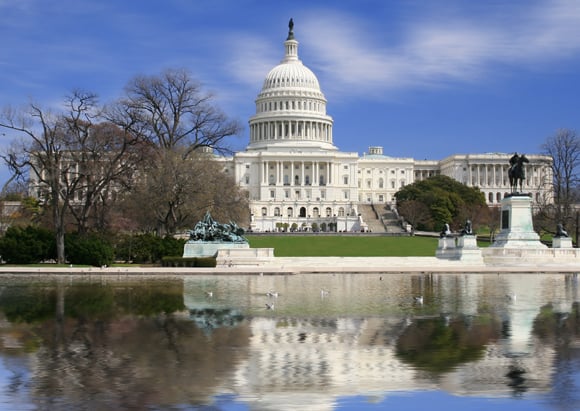After Congress returns from its spring recess in a couple weeks, the presidential campaign is likely to hit the Senate floor in the form of legislation that would codify the so-called Buffett Rule.
Just before leaving town last week, a so-called cloture motion was filed in the Senate on the
Paying a Fair Share Act of 2012, a bill written by Sen. Sheldon Whitehouse, D-R.I., that would levy a minimum 30% tax rate on individuals making more than $1 million.
When the Senate comes back, it will vote on whether to start a debate on the bill. To overcome a filibuster, Mr. Whitehouse must garner 60 votes.
The “fair share” theme will be prominent in President Barack Obama's re-election campaign. He devoted his
radio address on Saturday to the upcoming Senate action.
“Over the last decade, we've spent hundreds of billions of dollars on what was supposed to be a temporary tax cut for the wealthiest two percent of Americans,” Mr. Obama said. “Meanwhile, over the last 30 years, the tax rates for middle class families have barely budged. That's not fair. It doesn't make any sense.”
Mr. Obama signaled that he intends to pressure lawmakers to pass the Buffett Rule, named after billionaire Omaha investor Warren Buffett, who makes the point that he pays a lower tax rate than his secretary. Mr. Obama said that he and Mr. Buffett should pay more in taxes, not less, or else programs such as Medicare will suffer.
“So every member of Congress is going to go on record,” Mr. Obama said. “And if they vote to keep giving tax breaks to people like me — tax breaks our country can't afford — then they're going to have to explain to you where that money comes from. Either it's going to add to our deficit, or it's going to come out of your pocket.”
The White House has attacked the
budget the House of Representatives passed last week. Written by House Budget Chairman Paul Ryan, R-Wisc., it would cut $5 trillion more in spending than Mr. Obama's budget and would overhaul the tax code by reducing the current six brackets to two while eliminating so-called tax expenditures, or special tax treatment for certain activities.
“We can't accept the Ryan Republican approach that hands out massive tax breaks to the wealthiest Americans at the expense of investing in the things we need to grow our economy, create jobs and help the middle class,” White House Press Secretary Jay Carney said in a March 29 statement.
While Mr. Obama and Mr. Ryan battle it out, Sen. John Thune, R-S.D., introduced a bill last week that would repeal the estate tax. Mr. Thune has 34 Republican co-sponsors for his measure, which is similar to a House bill that has 205 bipartisan cosponsors.
Here's what the Buffett Rule legislation, Mr. Ryan's budget and Mr. Thune's bill all have in common: None will become law this year. Each has been introduced to shape the election debate and develop sharper lines between the parties over tax policy.
It's a heavy lift to get 60 votes in the Senate for anything. Even if every Democrat and the independents who caucus with them back the Buffett bill, it will only total 53 votes. There is no way a Republican would sign onto that legislation — particularly when the GOP is trying to portray Democrats as profligate taxers.
Even if every one of the 47 Senate Republicans and a handful of Democrats sign onto Mr. Thune's bill, it will end up well short of the magic 60 level.
Democrats won't want to pass a rifle-shot tax bill and give up leverage on the estate-tax issue going into the lame-duck session of Congress that will deal with the expiring Bush-administration tax cuts. Besides, there's almost no chance Senate Majority Leader Harry Reid, D-Nev., would schedule a vote on Mr. Thune's bill.
Watch the Senate floor later this month to see how the tax debate will shape up on the campaign trail this fall. But don't sit on the edge of your seat waiting for a bill to be approved.







